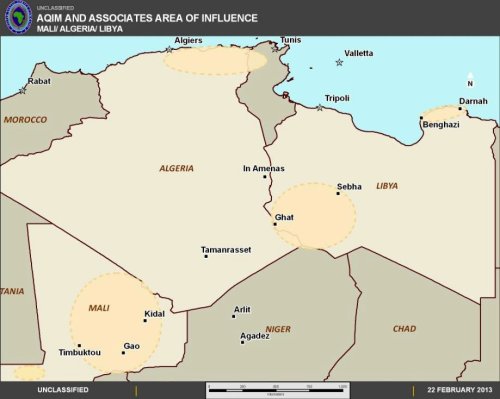Late yesterday, the US Department of Defense announced the transfer of two detainees held at the US detention facility at Guantanamo Bay, Cuba to Sudan. According to the Department of Defense, the detainees, identified as Noor Uthman Muhammed and Ibrahim Othman Ibrahim Idris, were transferred in coordination with “the Government of Sudan regarding appropriate security measures and to ensure that these transfers are consistent with our humane treatment policy.” The press release also included the following information regarding Muhammed and Idris:
“On Feb. 18, 2011, Muhammed pleaded guilty in a military commission to offenses under the Military Commissions Act of 2009, and was sentenced to 14 years confinement. In exchange for his guilty plea and Muhammed’s cooperation with prosecutors, the Convening Authority for Military Commissions agreed through a pre-trial agreement to suspend all confinement in excess of 34 months. Following the completion of the unsuspended portion of his sentence as of Dec. 3, 2013, the United States Government has repatriated Muhammed to Sudan.
“Idris was released from Guantanamo in accordance with a court order issued on Oct. 4, 2013, by the U.S. District Court for the District of Columbia. Idris has been designated for transfer since 2009 by unanimous consent among all six departments and agencies on the Guantanamo Review Task Force. As directed by the president’s Jan. 22, 2009, executive order, the task force conducted a comprehensive review of Idris’s case, which examined a number of factors, including security issues, in making that designation. In accordance with congressionally mandated reporting requirements, the administration informed Congress of its intent to transfer these individuals.”
In addition, the US Department of State announced yesterday that it had designated the al-Mulathamun Battalion as a Foreign Terrorist Organization (FTO). The announcement described the entity as:
“Originally part of al-Qa’ida in the Islamic Maghreb (AQIM), the al-Mulathamun Battalion became a separate organization in late 2012 after its leader, Mokhtar Belmokhtar, split from AQIM. In Belmokhtar’s first public statement after the split he threatened to fight against Western interests and announced the creation of the sub-battalion, ‘Those Who Sign in Blood,’ reportedly made up of the organization’s best fighters. Soon after, the sub-battalion claimed responsibility for the January 2013 attack against a gas facility near In-Amenas, Algeria. The four-day siege resulted in the death of at least 38 civilians, including three United States citizens. Seven other Americans escaped the attack.
“In May 2013, the al-Mulathamun Battalion cooperated with the E.O. 13224-designated Movement for Unity and Jihad in West Africa (MUJAO) in twin suicide bombings in Niger, which killed at least 20 people. In August 2013, the al-Mulathamun Battalion and MUJAO announced that the two organizations would merge under the name ‘al-Murabitoun.’ The newly formed al-Murabitoun extremist group constitutes the greatest near-term threat to U.S. and Western interests in the Sahel.”
The Department of State announcement added that given this history, both “Those Who Sign in Blood” and “al-Murabitoun” were treated as aliases for the purposes of the FTO designation, and that the same sanctions would be applied to activities conducted under these names. Sanctions against FTOs include a prohibition against knowingly providing, or attempting or conspiring to provide, material support or resources to, or engaging in transactions with the designated FTO and the freezing of assets.

Map released by AFRICOM in its 2013 posture statement showing AQIM areas of influence in Mali, Algeria, and Libya, as of 22 February 2013
The designation of the al-Mulathamun Battalion as an FTO represents a shift in the US government perception and response to the group and AQIM broadly. Previously, official correspondence had described their activities as being largely criminal in nature, focusing more on activities like hostage taking for ransom than anti-government terrorism. Belmokhtar had, for instance, gained the moniker “Mr. Marlboro” as a result of his cigarette smuggling, seen as hardly the focus of a hardened terrorist. The US now describes up and coming AQIM as one of the most dangerous of Al Qaeda’s regional affiliates and has offered rewards for the capture of individuals like Belmokhtar.